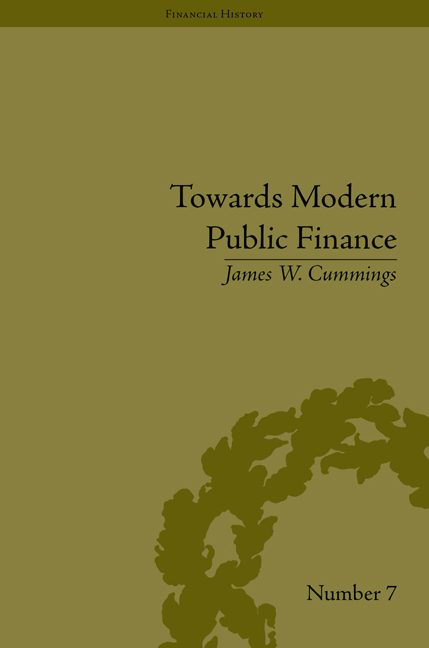Book contents
- Frontmatter
- CONTENTS
- List of Tables
- Introduction
- 1 Financial and Economic Background
- 2 Ideology, Revenue and Financial System
- 3 The Loan of 1846
- 4 The Loan of 1847
- 5 Mexico's Finances
- 6 Making War Pay: The Mexican Assessments
- 7 The Independent Treasury at War
- 8 The Loan of 1848
- 9 Mexican Indemnity and Bounty Land
- Conclusion
- Notes
- Works Cited
- Index
9 - Mexican Indemnity and Bounty Land
- Frontmatter
- CONTENTS
- List of Tables
- Introduction
- 1 Financial and Economic Background
- 2 Ideology, Revenue and Financial System
- 3 The Loan of 1846
- 4 The Loan of 1847
- 5 Mexico's Finances
- 6 Making War Pay: The Mexican Assessments
- 7 The Independent Treasury at War
- 8 The Loan of 1848
- 9 Mexican Indemnity and Bounty Land
- Conclusion
- Notes
- Works Cited
- Index
Summary
In addition to the three major loan acts Congress authorized the issuance of two smaller types of debt obligations to compensate American citizens and soldiers. The first Act, passed in August 1846, provided for the payment of two instalments due to Americans holding valid claims against Mexico under the Convention of 1843. Instead of cash the claimants received five-year bonds paying 5 per cent interest. At the close of the war provisions were made for paying the remaining fifteen instalments. In 1847 as an inducement for enlistment and reward for serving, non-commissioned officers and privates were granted land. Recipients had the option of taking land warrants or bounty land script (bonds) paying interest at 6 per cent.
The civil strife that periodically racked Mexico led to losses by foreign merchants doing business in that country. Commercial activities held the prospect of high profits but were also very risky. The Mexican government believed that foreign merchants should assume the same risk as its own businessmen and treat the losses as part of the cost of doing business. The foreigners felt differently and appealed to their own governments. They benefited from an emerging international trend by powerful commercial nations of demanding protection for their citizens. The British, French and American governments brought pressure on Mexico for compensation. The French resorted to force in 1837, sent out a squadron of ships and blockaded the major Gulf ports. Eventually, after capturing Vera Cruz's citadel and making Santa Anna a national hero by shooting off his leg, the French, with British assistance, received their money.
The United States government, relying on negotiation and threats, secured Mexico's agreement to submit the claims of American citizens to arbitration. The Convention of 1839 provided for a commission consisting of two members appointed by each government and a fifth appointed by the King of Prussia. The commission considered $11,850,589 in claims and reached agreement on $6,650,000 before its mandate expired. The balance of $5.2 million remained unresolved. Much of the $6,650,000 in claims considered by the commission was greatly inflated and only $2,026,139 was allowed.
- Type
- Chapter
- Information
- Towards Modern Public FinanceThe American War with Mexico, 1846–1848, pp. 151 - 156Publisher: Pickering & ChattoFirst published in: 2014



